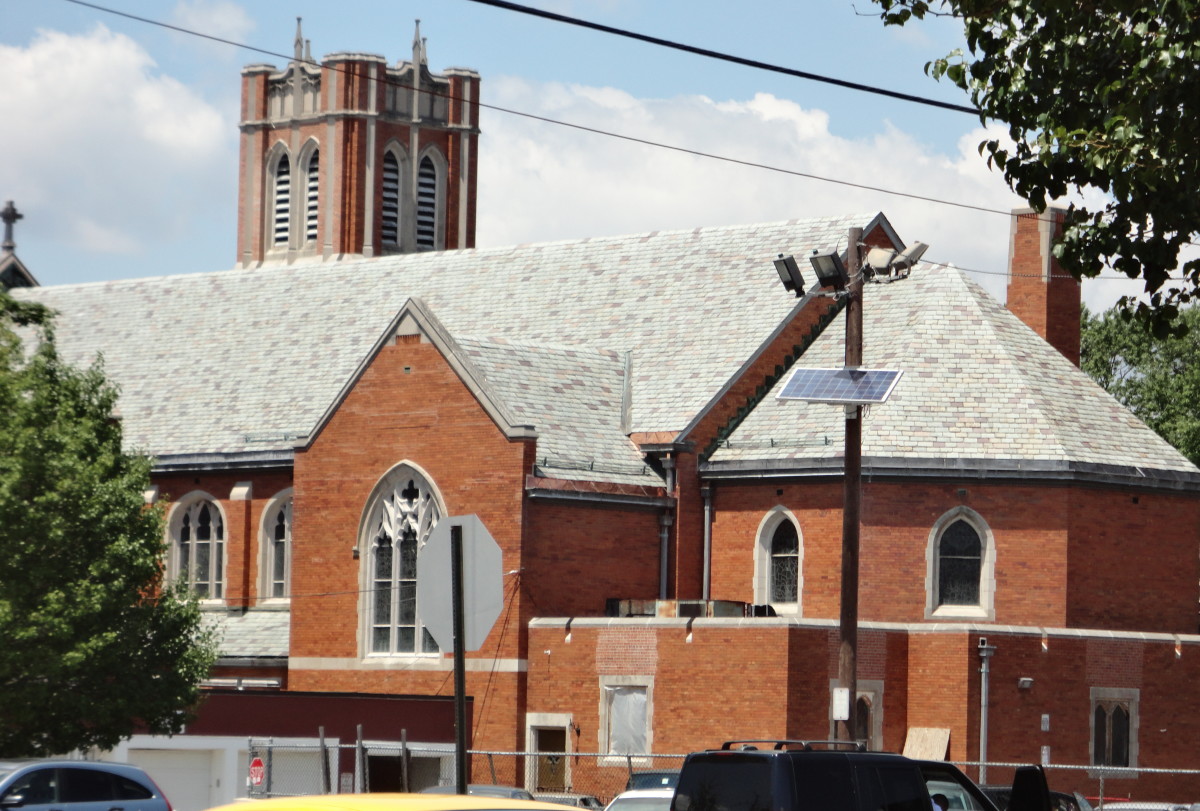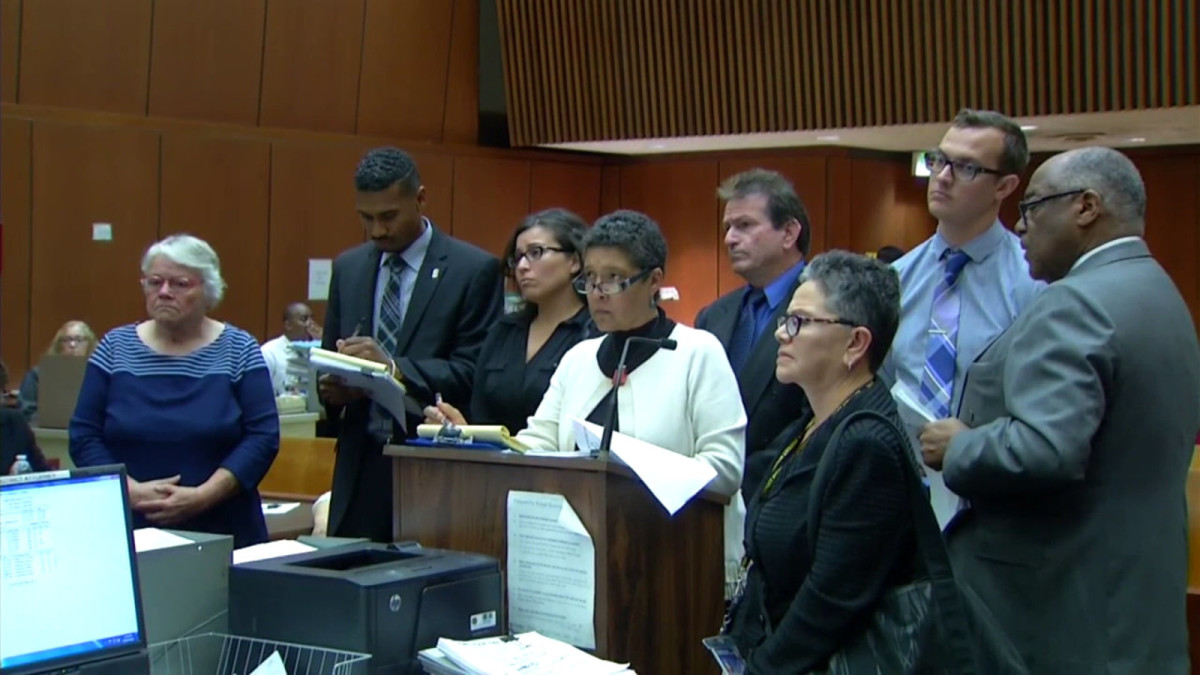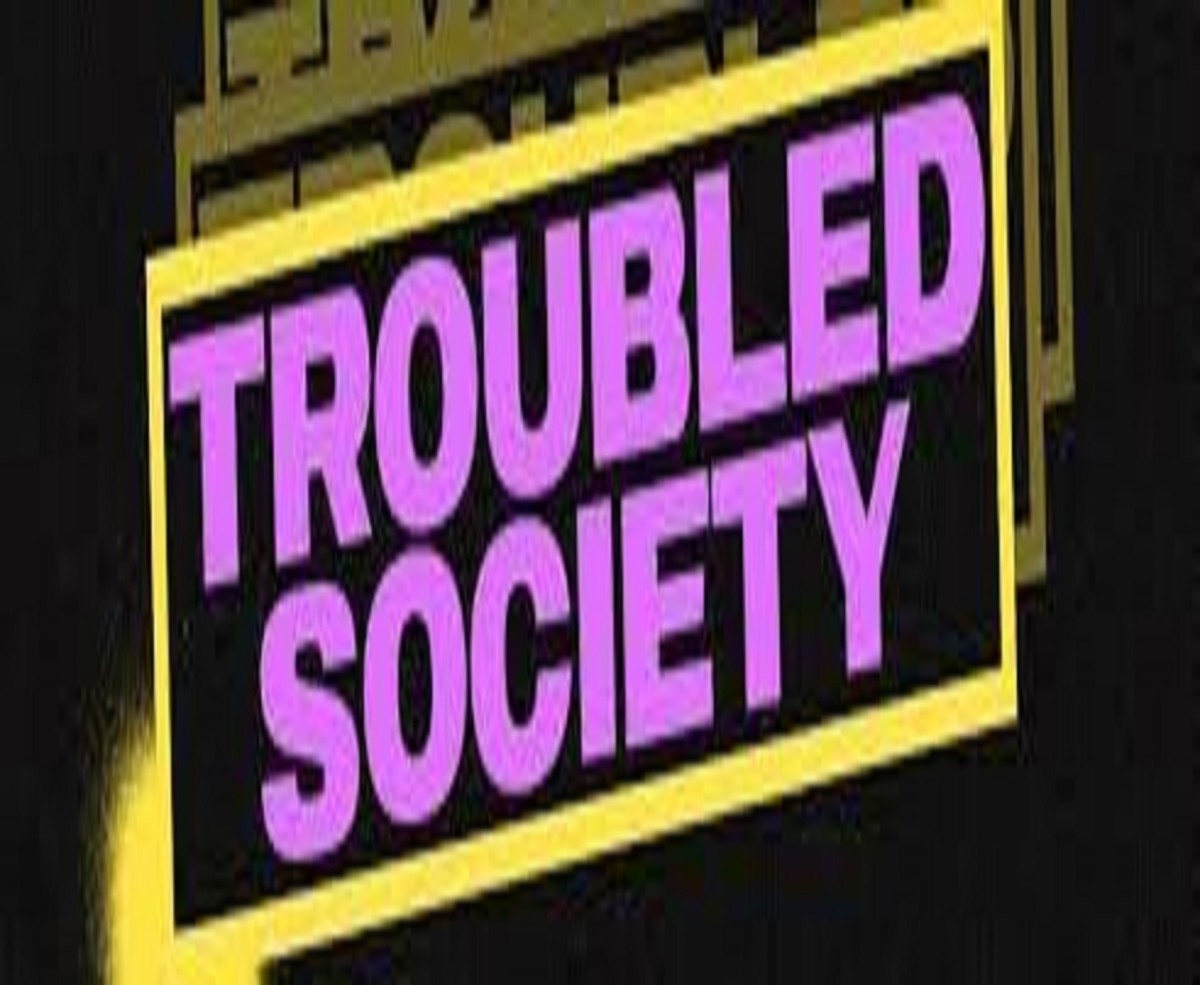Should Black People Abandon the Black Church?
The Black church does not need to be rejected, it needs to be reformatted.
— Antonio MooreUnderstanding the Power of Religion
Religion refers to a theory or body of dogma that seeks to comprehend a God, the universe, man’s place in it, and the supernatural realm in general.
Some believe that religion signifies more than a mere “system” or set of beliefs.
Religion serves as the foundation for ideals regarding life’s ultimate meaning.
It is truly representative of commonly held beliefs that seek to improve the quality of life among communities and their members. Therefore, all religions are essentially social at their origins and serve to maintain the whole of society.
Theodicy has been linked to religion. It offers a religious explanation for the unequal distribution of goods, as well as, bad fortune. It enables believers to keep their faith when they are facing adversity of any kind. It does so through justifying suffering by defending God’s goodness.
Some churches across America preach about how God will send you through hard times to detach you from the things that caused you to waiver from him in the first place. Some preach about how the devil is simply trying to trick people into thinking that their current situation will be a permanent situation.
Either way, it influences the moral development of people and helps to empower communities.
Where Today’s Black Church Leaders Stand on Activism
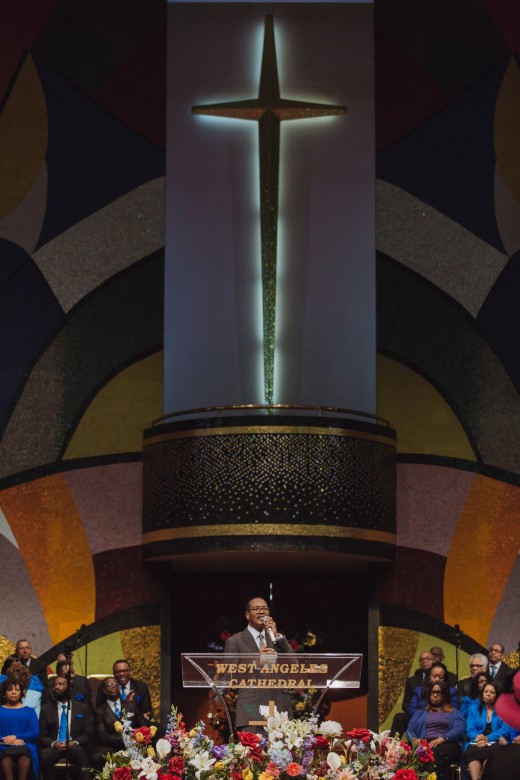
Many people who don't tend church aren't "barred" from the church, they are "bored" with the church.
— Kevin CosbyThese sermons are normally heard weekly in sanctuaries, sometimes referred to as the houses of worship or the house of God. These church buildings give members the feeling of belonging to a family or community. The preaching of the gospel is done in these houses of worship to minister to the members, in the hopes of raising their spirits. The theory is that if the member’s spirits are raised then they can function optimally throughout the week and come back to God’s house and testify about His goodness in their lives. The problem is that many community members are dealing with serious issues that churches, especially Black churches, are not addressing adequately because they are not professionally trained in helping like social workers (e.g., outreach, advocacy, crisis intervention, etc.).
Since the Code of Ethics of the National Association of Social Workers (NASW) stipulates that social workers should be committed to justice and respect for all people, it is important for social workers to also analyze issues related to religion and spirituality. This will help the practitioner to gather a more holistic view of their clients and their communities. It will also help to promote social justice and the worth of the client. It would be unethical practice to disregard an important facet of an individual’s growth, especially one of which plays a pivotal role in an individual’s development (e.g., spirituality).
There must be something compelling to make people want to come to church.
— Dr. Kevin CosbySpirituality is a process or a growth experience (e.g., maturing). If a client loses their faith then their momentum for growth may become stagnant in other areas of their life. A seemingly neutral situation may become complicated by the influence of an individual’s spirituality. For example, some Christians are conflicted about tattoos because the bible teaches not to defile the body; however, it is a very popular practice among young people and causes controversy, negative interactions or social alienation in the church, which could potentially foster or exacerbate distress. Therefore, it is important for social workers to analyze their client’s spiritual development over time because it may influence their behavior. It is especially important to do so when serving Black clients. This is because it may increase the effectiveness of their treatments by better assisting in the client’s recovery process.
Social work and religion are inspired by compassion and empathy. So, it seems fitting to use each of them to compliment one another in practice with vulnerable populations. Social workers need to develop a holistic view of their client in their environment to promote their overall well being. If a major aspect of the client’s life is left unanalyzed then how can a holistic view of the person be attained by the social worker? By obtaining a holistic view of the client, which includes spirituality then discrimination will be avoided and treatment will be more effective.
Critics Ask: Is The Black Church The New Plantation?
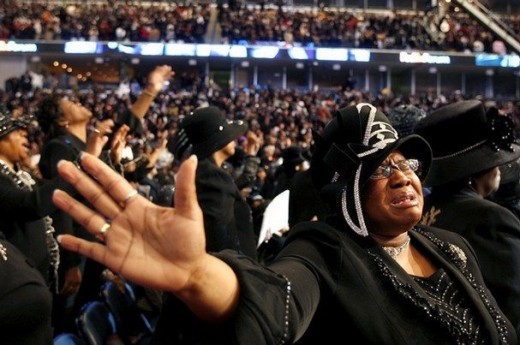
You will never grow your church unless you change.
— Dr. Kevin CosbyProblem Overview
The lack of utilization of mental health services is evident among Black people across the US and it should be addressed. The literature proposes that there are three fundamental conditions for people seeking help, such as endorsement of norms, stigma, and attitudes toward the profession. On a collective level, Black people normally refrain from seeking professional help for their problems. This is because the image of the helping profession has been tarnished by the stigmas it still carries today (e.g., Tuskegee Syphilis study). Stigma is a process that involves negative beliefs, which are based on erroneous knowledge that underlie prejudice and is expressed as negative attitudes. Due to the stigma associated with the grievous fraudulence of helping professionals in the past, Black people are presently half as likely as White people to seek mental health services.
Perhaps this is due to a cultural mistrust, which has developed among many Black people because of the stigma. Cultural mistrust is a “psychological construct in the lives of Black people”. In relation to the helping profession, it is the unwillingness as a patient to trust a system that is based on Eurocentric values (e.g., Freudian theories). Because of this psychological construct, many Black people are standoffish of the profession, mostly out of fear. Black people are “fearful that seeking therapy will result in them being labeled”, which is something a Black person fears immensely (e.g., attaining another label).
It has also been argued that the negative effects of cultural mistrust are not unique to counseling or psychotherapy. Rather it also represents a broader perspective of dissatisfaction within the U.S. healthcare system. This can be seen in different subgroups of the Black community. Black adolescents reported similar origins of stigmatizing attitudes toward mental illness as adults. This illustrates further the need to develop programs that take into account community, cultural, family, racial, and religious influences in order to promote the utilization of services and treatment.
Other researchers found that Black women with higher cultural values had greater perceived stigma about seeking counseling. Yet, some Black women do engage in services. However, when they do so it is for shorter periods of time and they usually have higher premature termination rates from treatment. This may be due to many Black patients feeling as though their counselors cannot relate to their issues because of the gap between them culturally. Also, Black people are more likely to engage in counseling when it is labeled as "counseling" and not as "psychotherapy" because of the increased stigma and negative connotations associated with the latter (e.g., one being labeled as psychotic).
‘They didn’t burn down our spirit’: Louisiana Black churches defiant amid fires
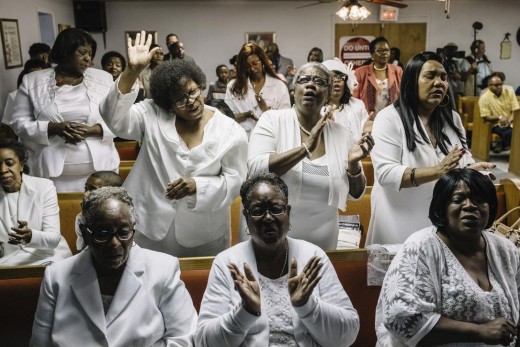
Some black people may prefer to discuss their concerns with their religious leader within the confines of their own personal faith and the safety of the church holding environment. Meanwhile, other Black people may feel it is inappropriate to speak frankly about their problems in public. Therefore, the Black church provides a sense of emotional comfort to its members. There is no pressure on its members to confess anything, so they frequent the house of worship to send their prayers to God with the rest of the congregation and hopefully hear a message that will sustain them in the world.
Spirituality has proven to be a key coping mechanism for racism related stress, as well. It provides Black people with a church community, spiritual community, guidance, and a personal relationship with God, which helps to combat racial issues they encounter on a daily basis. Researchers also found correlations between church support and “suicidality”, in that church-based social support networks deter suicide ideas and attempts. The type of support tends to be emotional and given in the context of services or community events, which helps to foster community and further healthy development. Higher levels of spirituality were associated with lower levels of depression, especially among people facing crisis. Therefore, spirituality is important to consider for treatment purposes because it intersects with an individuals functioning on multiple levels.
The Discussion: Will Racial Wealth Inequality Destroy The Black Church?
Does the black church keep black women single?
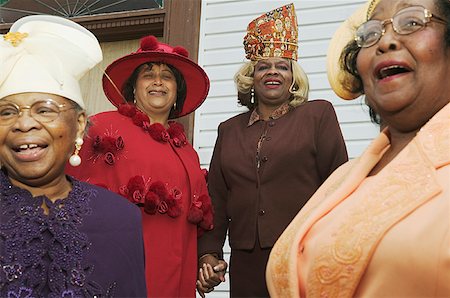
The literature on religion and spirituality, as it relates to the helping professions, offers some unique opportunities to improve social services in the Black community. Although research is nil, in reference specifically to spirituality and social work, some inferences can still be made about the causes of the lack of help seeking behavior among Black people.
Stigma and cultural mistrust seem to be the most evident causes for the lack of utilization of services. This exemplifies that the stigma associated with the helping professions must be erased to regain the trust of Black people. The context must be smoothed in order for more Black people to be more willing to engage in services with a professional. Theorists believe this can be accomplished by getting helping professionals to work in conjunction with religious leaders, since the Black Church has historically been the pillar of the Black community.
The Black Church is “relegated to the role of volunteer social service agency” in the Black community. Along those lines, researchers view clergy as an essential part of mental health care in the Black community because they provide assistance to people struggling with addictions, socio-emotional problems, and serious mental illnesses. It has also been theorized that a way to deal with the lack of utilization of professional services is to develop programs to work with clergy for identifying and supporting individuals with mental illness. Therefore, by gaining the support of religious leaders, rapport between the community and the helping profession can be rebuilt.
It also is pertinent to address that the Black church is predominately made up of women. This correlates with the literature, in that it illustrates who is impacted most by this problem (e.g., Black women are less likely to seek professional services).
Rather, they turn to the church, which is not necessarily a bad thing. But researchers have linked greater religious involvement to less reliance on thought suppression and denial as means of coping, among Black women. Therefore, it is important for social workers to practice addressing spirituality as it relates to Black women since studies show it can foster healthy functioning.
Black churches have historically served as the most socially acceptable coping mechanism in the Black community. Nevertheless, researchers are beginning to question whether the historical reliance on the support of the Black Church continues within the community, or if the community is “trending away from religious help-seeking”. These are interesting questions that inquire about whether the Black Church has failed to properly serve the Black community. Churches, in general, have been mixed up in many scandals during recent years, which tend to disenchant people (e.g., molestation, abuse, etc.). Also, many members suffer from “worldly” issues, which most likely do not involve the supernatural realm and can be addressed more effectively in other ways (e.g., high rent increases could be viewed as "evil" or "oppressive").
Many of these problems are deep rooted in the society (e.g., oppression, prejudice, racism, sexism, hatred, unemployment, debt, etc.). If the Black Church fails to empower their communities, like during the Civil Rights Movement, and adequately address the underlying issues associated with their congregant’s pain, separate from spirituality, then their weekly intentions in their houses of worship are good but misguided. It also adds insult to injury when certain religious leaders preach to vulnerable populations, while they seemingly thrive off of the profits from the church collection (i.e., the pastor drives a Bentley while most of the congregation takes the bus or the pastor has a mansion while many in the congregation are homeless). This is adding to the development of this problem because members are turning away from the church due to discouragement and disappointment. And, if Black people feel they cannot trust the helping profession, in addition to the Black church, then that begs the question, where will they turn to next?
Counseling the "Bad Girl of Gospel"
Announcements: Celebrity Church Drama (Start at 1:33)
Hallelu! Should Pettiness Have Several Seats?
The Church is a massive potential tool for mobilizing Black action and activism, & it’s a shame that many Black Christians seem so okay with shrugging their shoulders & hiding their ambivalence behind a scripture.
— B.AlexandraIs it Time for the Black Church to Innovate, Move On, and Break Every Chain?
Quick Question
Do You Think The Black Church Needs To Be Reformatted?
Example: How Helping Professionals Can Work Together Effectively with Religious Leaders
This content is accurate and true to the best of the author’s knowledge and is not meant to substitute for formal and individualized advice from a qualified professional.
© 2019 Crystal Gordon


